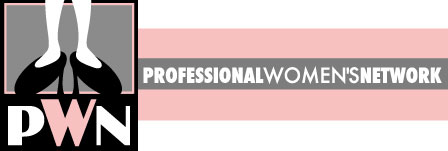''My mommy said I don't have to wash my hands after I go to the bathroom,'' one of my pre-school students said.
How was I going to sidestep this power struggle?
''At school,'' I said, ''we wash our hands. Do you want to use the pump soap or the bar soap?''
Fortunately, for children under the age of six, stating the rules clearly and enforcing the rules in a kind manner allows us to do important teaching. According to the Centers for Disease Control (CDC), the single most important thing we can do to keep from getting sick and spreading illness to others is to clean our hands. Hand washing is a critical skill to encourage.
Hand washing is not easy to teach as evidenced by studies reporting that three out of ten people do not wash their hands after using the bathroom, even though 95% of adults say they wash up.
More than 52 million cases of the common cold are reported each year among Americans under the age of 17, causing our children to lose 22 million days of school. The most effective method of combatting these microbes is by hand washing, and the optimum time to teach personal hygiene is during the toddler and pre-school years.
There are many obstacles to children learning to wash their hands independently. Most of the sinks in our homes, schools and other public places are impossible for our children to use, as the sinks are over our children's heads. Imagine that your bathroom sink was at the top of your refrigerator.
Another obstacle, ironically, is that children love to wash their hands. This enthusiasm leads children to ''play'' in the sink and create messes, which can lead to dangerous unsupervised situations.
A child's clothing can be a problem. Sleeves that don't push up easily discourage hand washing. Who wants to spend the day in a cold wet shirt? During the early stages of independent toileting young children can have bathroom accidents when they hear running water or when they place their hands in warm water. For many three-year-olds hand washing necessitates a change of clothing, which can wear any caregiver down.
How can we help our youngsters learn to wash up? Simply by providing an environment to do so.
In your bathroom provide a sturdy step stool that will enable your child to reach the sink without having to be picked up by an adult. A two-tread plastic stool available in most discount or hardware stores fits securely against the bathroom cabinet and gives plenty of standing room for small feet. A basket of washcloths makes perfect hand drying towels. Bars of soap in different colors and shapes will entice young hands to lather up.
Give your child a lesson on how to wash up by showing precisely each step of the process. Begin the lesson by telling your child, ''I would like to show you how to wash your hands. Watch me. I get the first turn, then you get the next one. Watch, please.''
With no words, slowly go through the entire hand washing process. If your child's attention span strays, smile and say, ''Watch, please.'' After you have dried your hands, tell your child, ''Now it is your turn.''
Watch your child, and refrain from correcting your child during his or her hand washing activity. Note at which steps he or she needs more instruction. Perhaps it is pulling up sleeves, turning on the water, lathering up, drying hands or leaving the sink ready for the next person.
The next day show your child how to wash his or her hands again. This time emphasize one point that needs mastering, such as pulling up sleeves. Continue to give a wordless lesson everyday until the process is mastered. Ten lessons should enable your child to wash their hands with a minimum of wet clothing and mess.
Clean hands are your family's best defense against contagious diseases. Encourage hand washing by preparing a place that promotes independent skills in your child. Here's to a healthy winter!
Next week: Understanding Happiness
Kids Talk™ is a column dealing with early childhood development issues written by Maren Stark Schmidt. Mrs. Schmidt founded a Montessori school and holds a Masters of Education from Loyola College in Maryland.
She has over 25 years experience working with young children and holds teaching credentials from the Association Montessori Internationale. She is also Creative Director for a video-based reading series for children ages three to six, The Shining Light Reading Series. Contact her via e-mail at maren@shininglightreading.com.
Complete Collection of the Shining Light Reading Series Now Available on DVD
Visit www.shininglightreading.com for more information.
Ask your local newspaper to carry Kids Talk. Call, write or e-mail your local newspaper editor and recommend Kids Talk.
Would you like to send Kids Talk to friends and family or receive Kids Talk e-mail updates in your own inbox? Sign up for FREE here:
Click here for a free subscription.
©2007 KIDS TALK™
25877 East Bright Avenue
Welches, OR 97067
503.550.3143
maren@kidstalknews.com Kids Talk is published in conjunction with
Scribe Marketing





